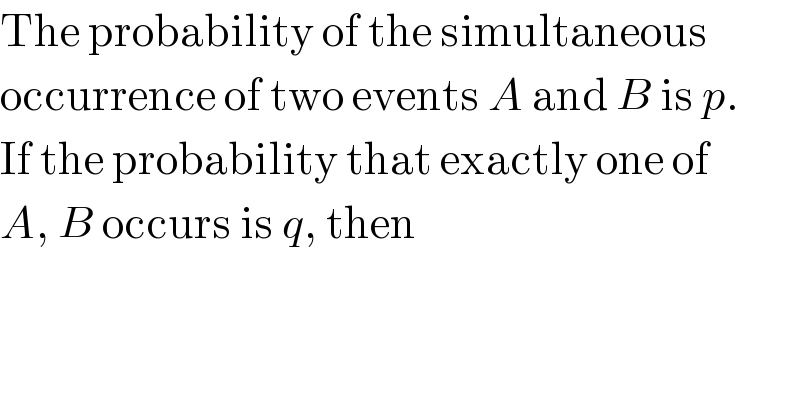
Question Number 5358 by realmath last updated on 11/May/16

$$\mathrm{The}\:\mathrm{probability}\:\mathrm{of}\:\mathrm{the}\:\mathrm{simultaneous} \\ $$$$\mathrm{occurrence}\:\mathrm{of}\:\mathrm{two}\:\mathrm{events}\:{A}\:\mathrm{and}\:{B}\:\mathrm{is}\:{p}. \\ $$$$\mathrm{If}\:\mathrm{the}\:\mathrm{probability}\:\mathrm{that}\:\mathrm{exactly}\:\mathrm{one}\:\mathrm{of} \\ $$$${A},\:{B}\:\mathrm{occurs}\:\mathrm{is}\:{q},\:\mathrm{then} \\ $$
Commented by Yozzii last updated on 11/May/16

$${p}={q}^{\mathrm{2}} \:{by}\:{And}\:{principle}\:{of}\:{independent}\:{events}. \\ $$
